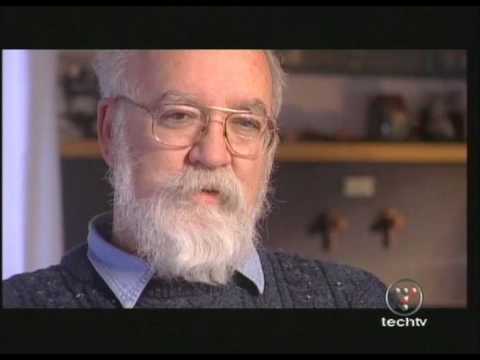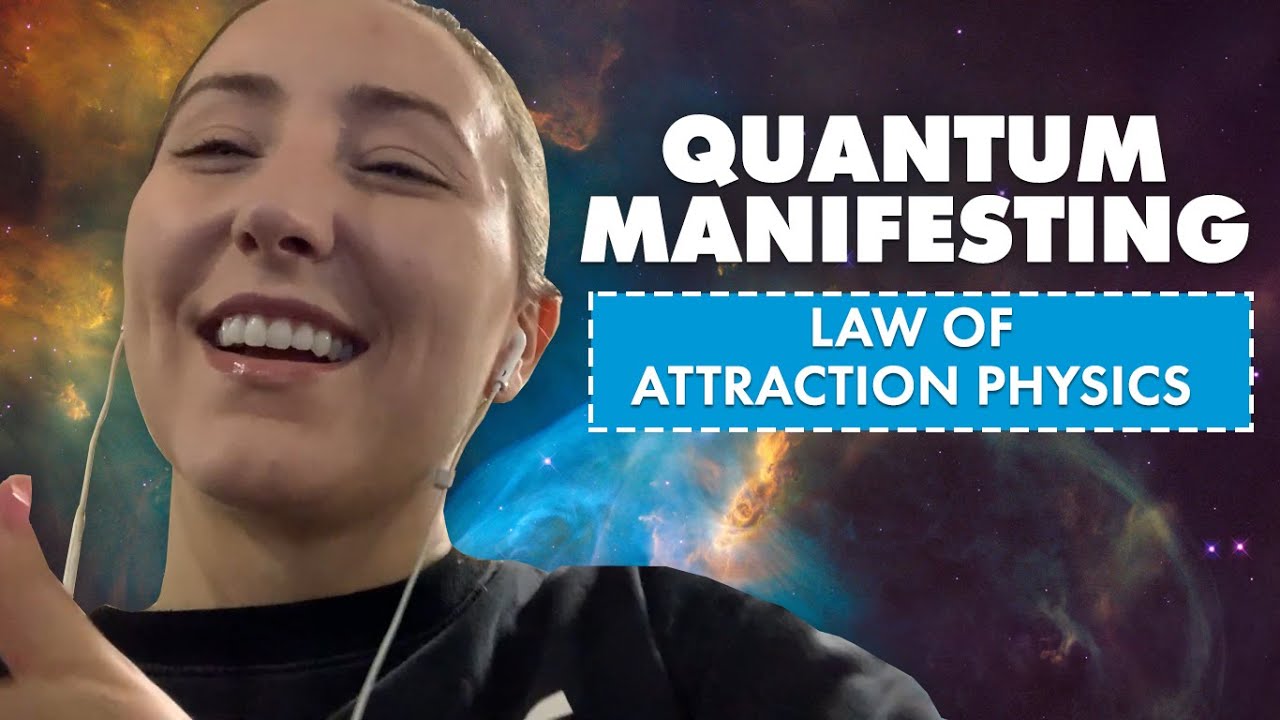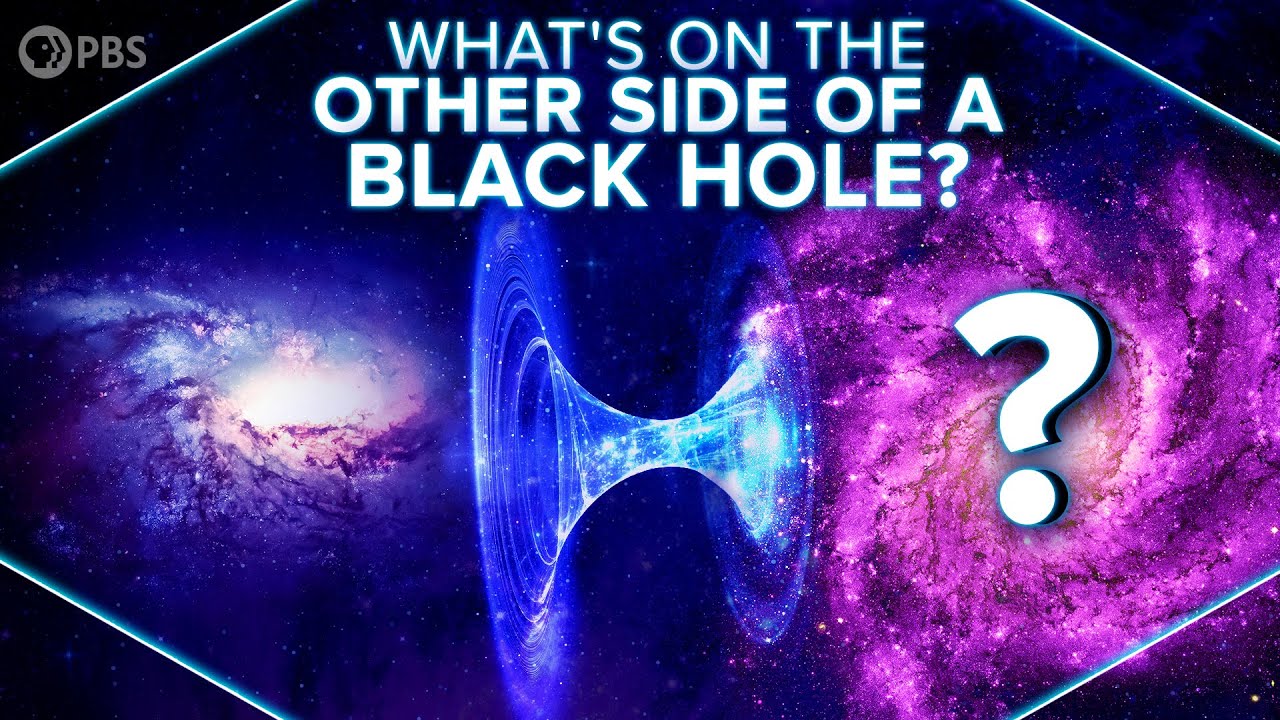Pete Machnik
Big Thinkers is a former ZDTV (later TechTV) television program. It featured a half-hour interview with a “big thinker” in science, technology, and other fields. Interviews were filmed in a 16:9 format and intercut with public domain material from the Prelinger Archives. This archival footage (mostly film clips from the 1940’s and 50’s) was used to create visual metaphors highlighting the speaker’s points.
This episode features Daniel Dennett. He is a prominent American philosopher whose research centers on philosophy of mind, philosophy of science and philosophy of biology, particularly as those fields relate to evolutionary biology and cognitive science. He is currently the co-director of the Center for Cognitive Studies, the Austin B. Fletcher Professor of Philosophy, and a University Professor at Tufts University. Dennett is also a noted atheist and advocate of the Brights movement.
(Text from Wikipedia)
Here are links to all 3 parts:
1 – http://www.youtube.com/watch?v=f0wetQwH9nY
2 – http://www.youtube.com/watch?v=Y82d06KURA4
3 – http://www.youtube.com/watch?v=MisXHBUjnbo
Source



— Sixteen slaves maketh not for living comfortably in any manse worth sacrificing dormant habits for. I believe that it was Captains Kangaroo & Crunch who replaced the wretched Paul Shannon's widow as executor of the Adventure Time estate. Seventeen falls provideth not for shelves that have yet to be screwed into lath-boards you crazy nigger-lover!!! Giving up murder is murderously-hard for anyone who enjoys the act of murder.
@crambo0349 agnosticism or deism (not to be confiussed with theism) is the best choice
Why is "I think therefore I am" wrong? Just wondering, Dennett doesn't explain why.
i enjoyed watching this video very much. My only complaint is somebody has put some annoying music over the top which i found quite distracting.
I myself am not limited by religious ideology. Dan Dennet still gets on my nerves. Even Richard Dawkins recognizes the invisible connections we all have to everything else. Quantum physics shows clearly, all is one. Though we could never hope to understand the quantum with our current brain. For such an intellect, he should know that. It seems, to me, he is as limited by ego as is a religious person.
nice..
do you have any more recordings of tech tv?
@CambridgeHeights- I *have* seen lots of his other work and it is exceptionally clearly reasoned.
@Derman- Quantum physics doesn't show 'all is one', nor does Richard Dawkins recognise 'invisible connections'
@cfarinho1- yes, unintelligent things can be intelligible
@theocean1973- Do rocks exist? they don't think. Does a chess player exist more when he is thinking hard about a move, than when he goes fishing and spaces out?
@Tom45931 Dennett – confidant but wrong
@DirtyMikeballin No,Dennett is a confidant of many people ahahaaaa fuck off smart arse
@saynotodarwin The problem with so-called christians in this country is that what they believe is almost totally predicated on whether or not someone else agrees with them. It's a great way of obscuring doubt, which makes this whole debate about power.
– And don't call me Boy.
He even speaks Italian. Quite fluently too!
I do like Dennett, but a fan of his theories of consciousness. Go back to making toys in the North Pole DENNETT!
on computers information can be wirelessly transfered. if consciousness is a program why does it have to come from a machine, why not another program transmitted separated from that machine? maybe the machine is not a machine but a program that emulate machine like behavior? have people ever tried Virtual PC inside a PC? the universe might be just like that. a program that simulate a machine that simulate a program that simulate a machine indefinitely?
how do we know that consciousness can only exist in biological form? what if consciousness can exist in space in nebulas? our bodies at atomic scale behave like plasma. everything in the universe seem to exist in spirals. what's the difference between twisting DNA and tornadoes? why do we have to divide the universe into many realities each seen differently? maybe there is only one code with many differences but with a repetition of sameness.
I wonder what Dennett thinks of Martin Heidegger?
@ShredTheGnar690 Read the Divine Comedy and you will get your answer
@ShredTheGnar690 Making new friends for the atheistic movement? I don't believe in any god either, but how about a little courtesy towards the people who don't believe as we do? You'll never "convert" anyone by being this unpleasant. I know it can be frustrating with people who are blinkered in their beliefs in a higher power, but please try to represent our side of the argument in a more pleasant way. Maybe you'll even convince someone to read a book with new skeptical eyes?
I can prove the existence of God and religion to anyone in less than a month if they are with me 1 on1. Inbox me if you may want
Yes descartes bullshit THank you danny dennett!!!
Whoa, that video is absolutely mind-blowing! A soul made from machines.
@coldarc The difference between DNA and a tornado is that the particles that make DNA are in a rigid and unchanging configuration while the particles that make (more like caught in) a tornado are fluid and do not stay in same position.
The shape of the two objects is not all that matters about the objects. The constituents of the objects are as important as the objects themselves.
The "Big Thinkers" can't even show why they think objects made or refined what they are.
Great now I have to scour youtube for part 2, meh.
"Big thinkers" more like "small mainstream bandwagon thinkers". These kinds of people will never understand consciousness while they're fixated on material explanations. Consciousness is simply not reducible to the brain.
3 and half minutes into it and he still hasn't said anything… NEXT!!!!
I think dualism is a much better explanation than this mind=brain rubbish, but it should be noted that standard dualism is not the only contender here. Bernardo Kastrup combined the filter view of the brain with a form of idealism in his skeptiko interview. At present that is my favored model because it is every bit as simple as the physical explanation, and conflicts with less of what we know.
Please don't feed the tiny-minded – it promotes their reproduction, thus causing a dilution of the gene-pool. AlexanderAnarchist is a troll – check his comment history. He actually seems proud of it… which should tell you just about all you need to know about him.
Sorry for the belated response. Your comment was buried. "mind=brain doesn't conflict with anything we know." Mind=brain conflicts with many things. Accurate veridical perception during near death experiences, shared near death experiences, terminal lucidity in cases of severe brain damage, shared Death Bed Visions, and more. A dualist model does works just as well with everything we know about the brain, and does not conflict with these things.
Sorry for the late reply. Kastrup's position could be summarized as a form of idealism. You can find more about his position by checking out his skeptiko interview. If you google 'bernardo kastrup skeptiko' his interview should be the first result.
In the past neuroscientists had attempted to find a unique correlate for consciousness in the brain, and had come up short. “We can correlate motor action to the motor cortex, vision to the optical nerve and the visual cortex, certain feelings such as arousal, pleasure, and excitement to neurotransmitters. However, the search for the neural correlate of consciousness has come up empty.” (quoted from thebigview)
The current materialist position is born of this failure. It is like saying that “while we can’t define what is and is not conscious, or understand how consciousness arises, surely consciousness must be in the brain somewhere” It’s not an explanation at all, it’s just a way of dodging the hard problems of consciousness.
Additionally I don’t see how you can call a belief in non-material consciousness to be ‘pseudoscience’, given the fact that materialism is an unproven belief system in itself. Materialism is a belief based on scientific observations (correlations between mind and brain). The dualist filter view of the brain does not conflict with any of these correlations, and in fact can explain more of the totality of what we know.
It seems more like one arrogant skeptic who thinks he knows everything hurls a ‘pseudoscience’ insult at another person challenging his belief system.
Yes, you do.
(Steps back to avoid being splashed by various brains exploding.)
Fan of Searle?
The last newest comment was 5 years ago. Not anymore